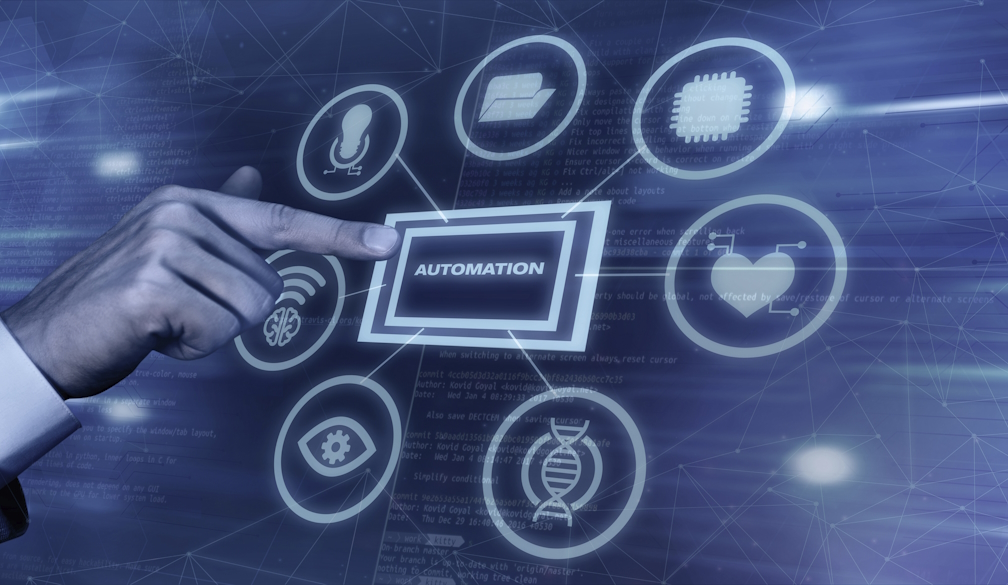How AI-Integrated SaaS Is Delivering Hyper-Personalization for Australian Businesses
- Written by Bhumi Patel

Since everything moves so fast in the digital economy, Australian businesses are encouraged to do more than just sell a product or service- they must create personalised experiences for customers to engage at a deeper level.
With startups in fintech and elsewhere, from around Sydney to Melbourne and farther west, hyper-personalisation has begun to establish itself as one of the very few powers of competition left in the market.
With the right SaaS development company coupled with the right strategic thought, businesses are now automating the mundane repetitive, exactly identifying when a customer needs something, tailoring content, and making decisions with greater agility.
This article will discuss how AI-powered SaaS platforms are reshaping customer engagement throughout Australia; how product engineering services come into play in building such solutions, and their interrelation with the larger picture of digital transformation services.
The Rise of Hyper-Personalization in Australia
Hyper-personalization extends beyond simple segmentation. It utilizes AI, machine learning, and real-time data to engage content, product recommendations, and services uniquely to each customer in the performing hour of need.
The demand for such experiences is skyrocketing in Australia. Recent industry reports say:
72% of Australian consumers expect brands to understand their unique needs and preferences.
88% are more likely to purchase from a company that provides personalized experiences.
Companies with best-in-class personalization practices see revenue increases of up to 40 percent attributed to those efforts.
From a retail brand recommending that perfect product to a fintech app predicting spending habits, AI-integrated SaaS has remained the answer to those tailored interactions.
Why AI + SaaS Are the Best Pair for Hyper-Personalization
SaaS platforms are capitalized for scalability, flexibility, or accessibility — all underlining the necessity to remain agile in a fiercely competitive market. When AI powers SaaS, you are gifted with the abilities to:
Analyse large quantities of data in real-time — AI algorithms process behavioural data.
Provide highly targeted content across millions of recipients, from modifying UX on a website to running marketing campaigns.
Anticipate forthcoming customer needs — and implement predictive analytics in reaching better decisions.
Auto-customer service — Through AI chatbots, voice assistants, and adaptive learning systems.
That is why many companies in Australia are now teaming with a SaaS development company and partnering with experts in AI & ML development services to design AI-enabled platforms customised to their specific industry needs.
Use Cases of AI-Integrated-SaaS in the Australian Market
And now let's see a few case studies exhibit some relevant applications for hyper personalization across Australia:
- Retail & E-Commerce
- Emerging e-tail giants and mid-tier Australian retailers have been using AI-driven SaaS tools to:
- Recommend products based on browsing and purchase history.
- Offer personalized discounts to individual customers.
- Predict restocks using sales data and seasonality.
Example: A Melbourne-based online shop saw its conversion rates grow by 30% once they put an AI-integrated SaaS platform to work delivering real-time product suggestions based on client browsing behaviour.
- Fintech & Banking
The Australian fintech sector is highly promising, with over 800 companies running nationwide. AI-SaaS solutions in this line include:
- Analysing spending habits to give personalised financial advice.
- Flagging suspicious transactions for potential fraud.
- Tailoring investment recommendations.
Banks and fintech apps are now collaborating with their product engineering teams to embed these AI models into their customer-facing platforms.
- Healthcare
- SaaS AI platforms empower personalized patient experiences by:
- Developing custom treatment plans based on patient history.
- Predicting patient needs through AI-powered diagnostics.
- Alerting patients with targeted reminders about health and preventive care.
This increases patient engagement and supports Australia's wider healthcare objectives.
- Education & Training
- Universities and online learning platforms use AI-integrated SaaS to:
- Deliver adaptive learning experiences to individual students.
- Recommend study resources based on performance data.
- Predict dropout risks and intervene early.
The Role of Product Engineering in Construction of AI Integration in SaaS
Hyper-personalisation does not come by mere chance. It needs a robust architecture, well-engineered API, and scalable infrastructure. This is where product engineering services play a pivotal role.
From conceptualisation to deployment, an articulate product engineering team would ensure:
- The SaaS platform integrates well with AI models.
- Data pipelines are secure and comply with Australian privacy laws.
- The system is scalable to embrace growth that might come in the future.
Using another example, a retail company may go ahead with personalized recommendations but expand into predictive inventory management at a later date-pressure free product engineering will allow the platform to evolve without expensive rebuilds.
AI Integrated SaaS as a Driver of Digital Transformation
Hyper-personalization is not just a strategic marketing notion; it is a core driving force for digital transformation services in Australia. Businesses across the country have started realising that customer expectations are changing so rapidly that traditional systems are incapable of keeping pace.
Through the adoption of AI-integrated SaaS solutions supported by expert services, companies can:
- Upgrade their legacy systems without building from scratch.
- Build decision models while introducing real-time analytics.
- Maintain consistency in personalised experiences across all customer touchpoints.
- Stronger customer loyalty means higher engagement and revenue predictability.
Challenges and Considerations for Australian Businesses
Although the potential is big, Australian businesses face some challenges in implementing SaaS integrated with AI for hyper-personalization:
Data privacy compliance: Platforms must comply with the Privacy Act 1988 and Australian Consumer Data Right (CDR) regulations.
Integration Complexity — There may be a need to re-engineer existing systems in order to take full advantage of AI.
Change Management — Teams need to be trained in the adoption and management of AI-driven workflows.
A reliable SaaS company can assist you in overcoming these obstacles, by devising a roadmap that serves both the technical requirements as well as business goals.
The Future of Hyper-Personalization in Australia
With the development of the intelligence of AI, hyper-personalization in SaaS will increasingly evolve. We will witness real-time voice and sentiment analysis for customer support, proactive recommendations for products relative to location and context, and predictive maintenance of SaaS systems to reduce downtime.
In these domains, early adopters of the innovations, helped by product engineering services and digital transformation services, will have the greatest chances of leading their industries.
Conclusion
Hyper-personalization is a condition, rather than a factor of prosperity, in Australia's competitive market. AI-powered SaaS platforms enable companies to create experiences that are personally relevant, timely, and few, thus cementing relationships with customers and, in turn, opening avenues to higher revenue.
Whether in fintech, retail, healthcare, or education, the proper SaaS software development company and professional product engineering services shall always see to a future-proof building for your platform.
By coordinating these technologies with a coherent digital transformation strategy, Australian businesses may remain on top of the trends, delivering experiences proxy-valued by customers rather than products and services.
Author Bio : Bhumi Patel has vast experience in Project Execution & Operation management in multiple industries. Bhumi started her career in 2007 as an operation coordinator. After that she moved to Australia and started working as a Project Coordinator/ Management in 2013. Currently, she is the Client Partner - AUSTRALIA | NEW ZEALAND at Bytes Technolab - a leading Web development agency in Australia, where she works closely with clients to ensure smooth communication and project execution also forming long term partnerships. Bhumi obtained a Master of Business Administration (MBA) in Marketing & Finance between 2005 and 2007.

















